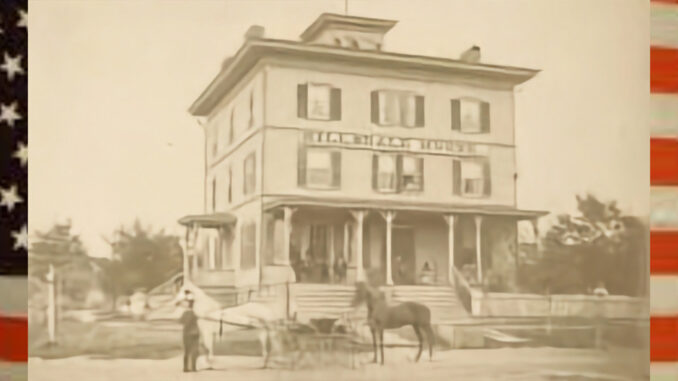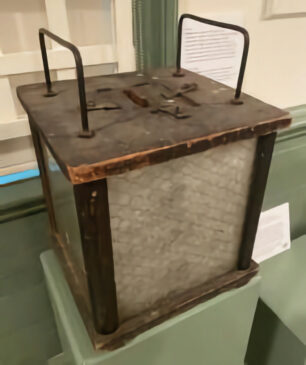
PARK RIDGE—Did you know that Park Ridge’s first election in 1894 was explosive—literally? The winning candidate, who led by a single vote, celebrated by firing off a cannon in Depot Square.
How about the story of Washington Township’s formation in 1840, when the opposing side stole the ballot box and threw the election officials out the window of a local tavern?
The Pascack Historical Society’s latest exhibit highlights the museum’s archive of political relics dating to the mid-1800s, as well as remarkable stories of elections from our region’s past. Visitors will see ballots and voting boxes from the 19th century, campaign memorabilia, political flyers, photographs, and learn about local polling places of yesteryear.

“Pascack’s Political Past: A Century of Election Memorabilia” is available for viewing every Sunday from 1 to 4 p.m., now through November. Museum admission is free. The Pascack Historical Society is at 19 Ridge Ave., Park Ridge.
Leading up to the election, each week on this page we will feature a photograph, artifact, or story from the exhibit. This week, we go back to 1890s Hillsdale.
They Wrecked the Barroom at the Hillsdale House
One location where elections were held in the late 19th century was the Hillsdale House hotel. That building is still standing opposite the train station at Broadway and Hillsdale Avenue.
Things were known to get rowdy in those days. The hotel bar was open, and the liquor was in ample supply. As each local office was balloted for separately, and each person cast his ballot one at a time, voting took quite a while. In a side room, there was a table with a wooden ballot box, and in between casting their votes, the men—it was males only who could vote in that era—returned to the barroom, getting progressively more intoxicated as the day wore on. Voting was as much a social event in those days as it was a matter of civic duty.
During one 1890s election, the barroom became so loud, and the men so boisterous as they discussed the merits of the various candidates, that voting had to be stopped until the crowd could be quieted. When the polls reopened, there was a surge to the voting room, a solid mass of men trying to get through the doorway at once.
One especially burly man was caught between the others, his shoulders pressed together until his black Sunday coat split up the back. Realizing the damage done to his best garment, he uttered a volley of profanity, threatened mayhem and violent death to everyone within reach, and plunged wildly for a rear door opening into the yard, pushing several men ahead of him. The door burst from its hinges, and the men landed in the middle of the garden.
It was midnight before balloting and counting were concluded, and daylight came before the last hangers-on finally went home. The rooms were badly wrecked, and Mrs. Werkheiser, who ran the hotel, declared she would never again allow an election to be held in her place.
